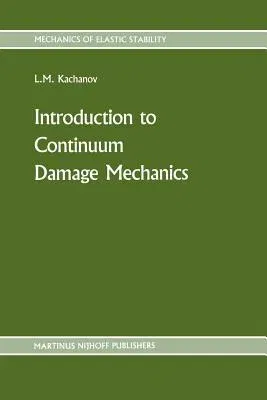Modern engineering materials subjected to unfavorable mechanical and
environmental conditions decrease in strength due to the accumulation of
microstructural changes. For example, considering damage in metals we
can mention creep damage, ductile plastic damage, embrittlement of
steels and fatigue damage. To properly estimate the value of damage when
designing reliable structures it is necessary to formulate the damage
phenomenon in terms of mechanics. Then it is possible to analyse various
engineering problems using analytical and computational techniques.
During the last two decades the basic principles of continuum damage
mechanics were formulated and some special problems were solved. Many
scientific papers were published and several conferences on damage
mechanics took place. Now continuum damage mechanics is rapidly
developing branch of fracture mechanics. This book is probably the first
one on the subject; it contains a sys- tematic description of the basic
aspects of damage mechanics and some of its applications. In general, a
theoretical description of damage can be rather compli- cated. The
experiments in this field are difficult (especially under multiax- ial
stress and non-proportional loading). Therefore, experimental data, as a
rule, are scarce. Determination of functions and constants, which play a
role in the complex variants of the theory, from available experimental
data is often practically impossible. ix L.M. Kachanov The problems of
damage mechanics are mainly engineering ones. Therefore, the author
tries to avoid superfluous mathematical formalism. Some more details of
the book's subject can be found in the list of con- tents.


